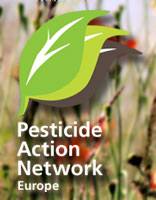22 May 2007, Strasbourg
Ministers must seize initiative to reduce chemical water pollution
As the debate progresses over a proposed Directive(1) determining which polluting chemicals should be limited in Europe's water, the European Parliament today voted to increase the number, but yielded on several far-reaching exemptions under pressure from industry. Health and environmental NGOs took some comfort from the large majorities on the positive points and appeal to environment ministers to support screening of safety information that becomes available under the EU's new Chemicals law (REACH)(2) to better identify pollutants, when ministers announce their position in June.
MEPs voted to expand the list of pollutants covered and included several 'high concern' water pollutants. Among the enlarged list of substances which must now be monitored are several 'high-concern' poisons, such as sunscreen ingredients. Grazia Cioci from PAN Europe said: "We're glad that the presence of hazardous pesticides in water, such as quinoxifen, glyphosate and mecoprop will finally be monitored and better controlled".
Sebastian Schönauer, of Friends of the Earth Germany (BUND) said: "The results are mixed. Member States are required to improve the state of inland waters by 2015. By 2020 at the latest, the marine environment must be virtually poison-free, in line with the Water Framework Directive and international agreements. Parliament is also introducing provisions for emissions restrictions for certain polluters and for critical exemptions like navigation."
Despite the positive aspects of the vote, the NGOs were dismayed that MEPs granted far-reaching exemptions which might seriously undermine the objective of the Water Framework Directive as well as those of the OSPAR and Helsinki Conventions' targets(3) to protect the Northeast Atlantic and Baltic. "It's unacceptable that the pollution of sediment isn't being properly taken into account," said Mecki Naschke, of EEB. "This ignores the dynamic nature of the water ecosystem and the fact that pollutants may be re-released This will not help Member States achieve the 'good chemical status' by 2015."
"We're disappointed that Parliament hasn't seized this opportunity to regulate DEHP more strictly and phase it out sooner by giving it a 'priority hazardous substance' category," said Génon Jensen, Director of HEAL."DEHP is a reproductive toxic substance, and there's mounting evidence of the health effects of exposure in the womb. It's already regulated in toys, plastics and medical devices."
— ENDS —
Notes to editors:
- Proposal for a Directive on Environmental Quality Standards in the Field of Water Policy and for amending the Water Framework Directive 2000/60/EC (Com(2006)-C 6 - 0243/2006 - 2006/0129 (COD))
- REACH: Registration, Evaluation, Authorisation and Restriction of Chemicals
Objective of the WFD is to reach "Good Chemical Status" by 2015
- Target of OSPAR and HELCOM is to minimise concentrations of hazardous substances to natural background level or close to zero at the latest by 2020.
< Back


